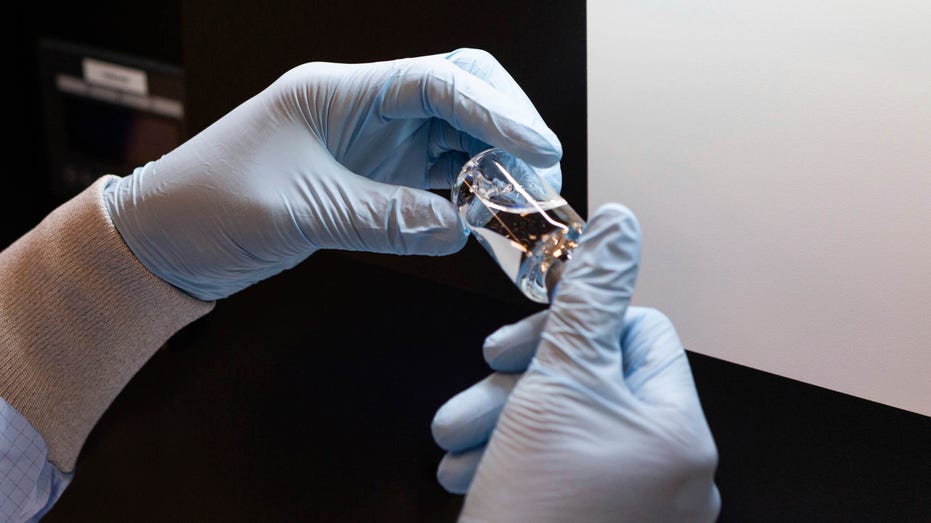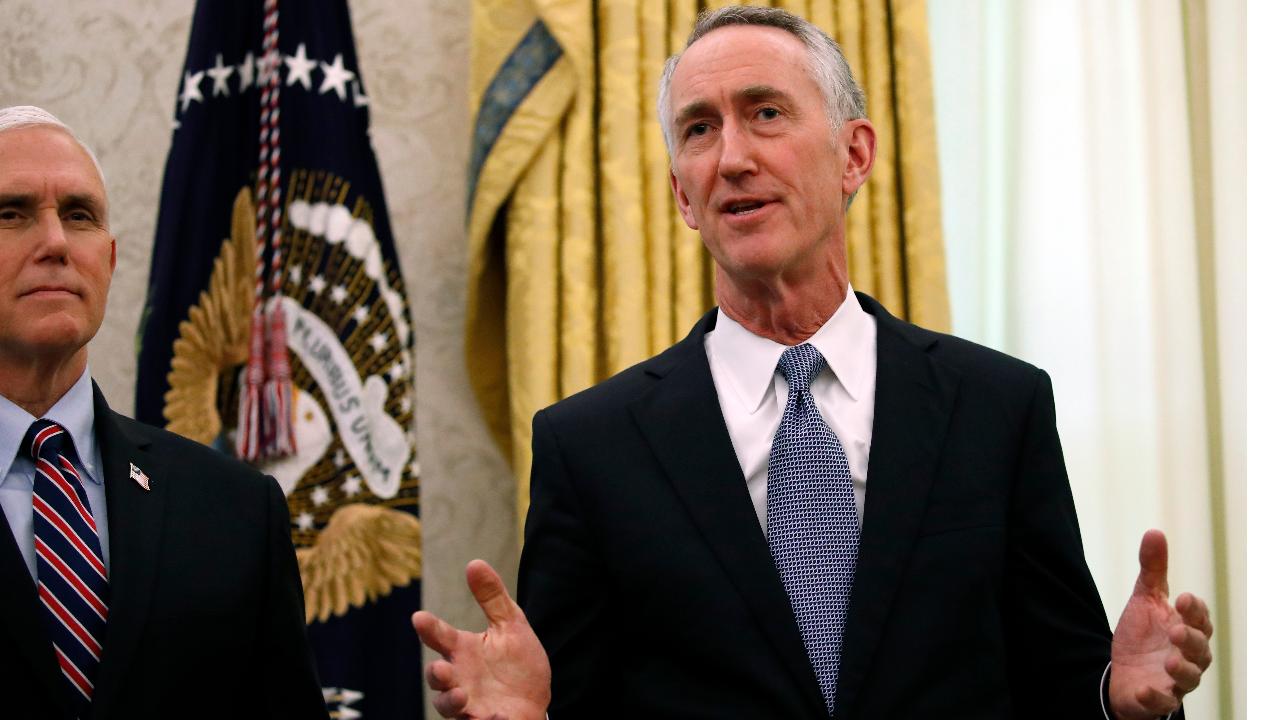COVID-19 drug remdesivir to cost $3,120 for typical patient on private insurance
Gilead preparing to begin charging for remdesivir in July
Gilead Sciences Inc. detailed its pricing plans for Covid-19 drug remdesivir, saying it will charge U.S. hospitals $3,120 for a typical patient with commercial insurance.
The drugmaker on Monday disclosed its pricing plans as it prepares to begin charging for the drug in July. The U.S. has been distributing remdesivir donated by Gilead since the drug was authorized for emergency use in May.
| Ticker | Security | Last | Change | Change % |
|---|---|---|---|---|
| GILD | GILEAD SCIENCES INC. | 151.68 | -0.82 | -0.54% |
Under the company's plans, Gilead will charge a higher price for patients with private insurance in the U.S., and a lower price for U.S. government health programs like Medicare and all other developed countries that insure their patients directly.
GILEAD SCIENCES: WHAT TO KNOW ABOUT THE BIOPHARMA COMPANY WORKING FOR A CORONAVIRUS CURE
The government price will be $390 per dose or $2,340 per patient for the shortest treatment course and $4,290 for a longer treatment course.
Gilead said in the U.S. it will charge nongovernment buyers such as hospitals about $520 per dose, or a third more than the government price, for patients who are commercially insured. That works out to $3,120 for a patient getting the shorter, more common course of treatment, and $5,720 for the longer treatment duration.
WHAT IS REMDESIVIR, GILEAD’S POSSIBLE CORONAVIRUS DRUG?
The U.S. is the only developed country where Gilead will charge two prices, Gilead Chief Executive Daniel O'Day said in an interview. In other nations, governments negotiate drug prices directly with drugmakers. "The logic is that we wanted a single government price around the developed world," Mr. O'Day said.

In this March 2020 photo provided by Gilead Sciences, a vial of the investigational drug remdesivir is visually inspected at a Gilead manufacturing site in the U.S. (Gilead Sciences via AP)
The higher price for U.S. commercially insured patients is because government health programs such as Medicaid typically receive statutorily-defined discounts off the prices companies receive in the private market.
"This medicine is priced far below the value it brings to health-care systems and that's true for private payers and government payers," Mr. O'Day said.
On average, the drug should help reduce hospital costs by $12,000 per patient, he said. Gilead estimated the savings based on data showing that each day of hospitalization costs $3,000 and that patients taking remdesivir are discharged four days sooner than those receiving standard treatment, Mr. O'Day said.
GILEAD SAYS REMDESIVIR HELPED MODERATE CORONAVIRUS PATIENTS IMPROVE
Covid-19 patients get two doses of remdesivir by infusion on the first day, and one dose daily afterward. The shortest treatment course is five days, while a longer treatment course takes 10 days.
Currently, 90% to 95% of patients receive five-day treatment courses, Mr. O'Day said.
Remdesivir is the first antiviral drug shown to be effective at treating Covid-19 in a major clinical trial, reducing patients' recovery times by four days compared with the placebo group in a large study funded by the National Institute of Allergy and Infectious Diseases.
So far, few other drugs have proven in human testing to help coronavirus patients. One drug that recently produced positive results in a clinical trial was the steroid dexamethasone.
The drug, which treats Covid-19 by a different mechanism than remdesivir, has been on the U.S. market for decades to treat other diseases. It hasn't been authorized in the U.S. to treat Covid-19, but doctors are allowed to prescribe it "off-label" under U.S. regulations.
Given its unique status, remdesivir's pricing has been widely anticipated--and hotly debated--among doctors, health insurers and investors. It could serve as the starting point for other drugs that eventually prove to safely treat coronavirus patients.
The Institute for Clinical and Economic Review, a nonprofit group that analyzes pharmaceutical prices, said last week that a cost-effective price for remdesivir would be $2,520 to $2,800 per patient if dexamethasone becomes a standard medication for Covid-19.
Without dexamethasone, a cheap generic medication, remdesivir would be cost-effective at a range of $4,580 to $5,080 a patient, ICER said.
GET FOX BUSINESS ON THE GO BY CLICKING HERE
The U.S. Food and Drug Administration on May 1 authorized emergency use of remdesivir through the course of the pandemic. Gilead plans to seek a full, permanent approval.
In July, Gilead will start charging for the drug, but federal and state officials will continue deciding which hospitals receive it. In September, Gilead expects to have enough supply to meet demand and will distribute the drug in the same way it distributes other medicines.
One issue that has already factored into debate over what remdesivir should cost is the U.S. government's role in funding its development.
The NIAID funded the study that showed it sped the recovery of hospitalized Covid-19 patients, and expects to spend at least $30 million on the study through the end of the fiscal year, an NIAID spokesman said in February.
ASTRAZENECA APPROACHED GILEAD ABOUT POTENTIAL MERGER: REPORT
Gilead has also invested in researching remdesivir. The company previously developed the drug to treat Ebola patients, but it didn't work as well as other drugs. Gilead and other researchers explored remdesivir's Covid-19 use after the virus emerged.
Gilead has said it spent about $50 million on research and development related to the drug in the first quarter, or about 4.5% of its total R&D spend. Through the end of 2020, Gilead expects to spend more than $1 billion on developing and manufacturing remdesivir, Mr. O'Day said.
CLICK HERE TO READ MORE ON FOX BUSINESS
Some generic drugmakers have said they plan to charge less than $1,000 per treatment course in India and Bangladesh, where Gilead has licensed rights to sell the drug. ICER estimates that the raw materials needed to make remdesivir cost about $10 per patient for a 10-day treatment course, citing a recent academic paper
Write to Joseph Walker at joseph.walker@wsj.com




















